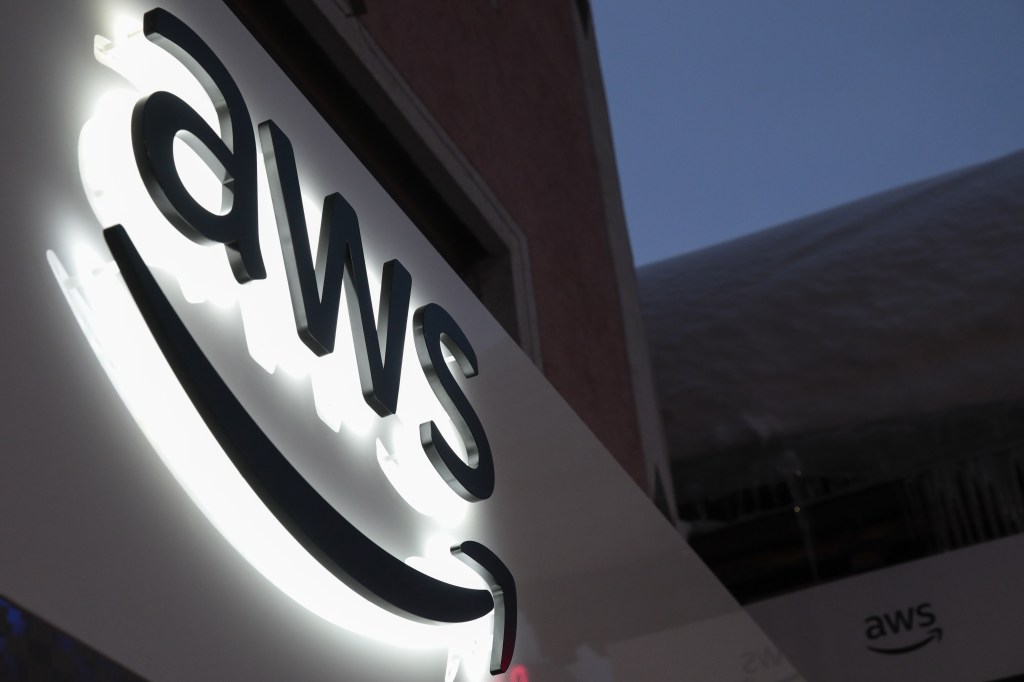Amazon wants to help organizations connect the various apps that they use — leveraging, in part, AI.
The company today announced AWS AppFabric, a new no-code service designed to bridge the gap between software-as-a-service (SaaS) apps in enterprise environments. Amazon claims that AppFabric, generally available as of today, can deliver better security and management than rival solutions on the market.
“With AppFabric, we’re enabling customers to actually get assistance and get access to information at the right time,” Federico Torreti, the head of product for AppFabric, told TechCrunch during a briefing. “Companies don’t need to worry about building and maintaining connections between various apps.”
From the AWS console, customers using AppFabric can integrate their third-party apps to get a unified view into app usage and performance. Once connected, AppFabric provides standardized data and cross-app workflows, aggregating and normalizing data using AWS’ Open Cybersecurity Schema Framework so it can be analyzed for patterns, security threats and more.
AppFabric can also be used to set common policies across apps. And it can monitor apps for unusual activity, notifying the appropriate team via alerts.
Certainly, given the SaaS app sprawl, there’s a need for management and orchestration layers like AppFabric. According to Statista, as of 2022, the average organization was using 130 apps. In a separate recent survey, over 30% of businesses reported duplicate work due to multiple SaaS applications.
Companies can build point-to-point integrations for SaaS apps in-house — that’s always an option. But it can be time-consuming and costly work, particularly with apps that have proprietary APIs, connectors and data formats.
The challenge of connecting apps in-house has given rise to third-party platforms that abstract away the work, known as integration-platforms-as-a-service (iPaaS). According to poll released by IDG and TeamDynamix, iPaaS is one of the fastest-growing software markets, projected to reach $2.7 billion by 2024.
Sixty-six percent of companies responding to the IDG and TeamDynamix poll said they’ll invest in iPaaS to address data integration and automation challenges, while another 27% said they already have.
But what does Amazon bring to the table that the many iPaaS solutions out there (see Zapier, Digibee, etc.) don’t, especially considering AppFabric only natively supports 17 apps at launch (including — but not limited to — Slack, Logz.io, Rapid7, RSA Netwitness, Netskope and Splunk)?
For one, Torreti argues, AWS is a trusted entity. And it has cachet.
“If [a company is] using a third-party service that enables two-point integrations, there’s two questions there,” he said. “One is around the security of what happens with the data — the transferring of data. And the second is the ‘busyness’ of the solutions. I think customers have come to appreciate AWS’ infrastructure offerings.”
AppFabric’s other potential differentiator is set to arrive later this year.
In the coming months, AppFabric will gain an AI assistant powered by models developed internally at AWS as a part of Amazon’s Bedrock generative AI platform. The assistant will be able to complete a range of tasks, Amazon says, like surfacing insights and creating content based on context sourced from several SaaS apps.
For example, the AppFabric assistant will be able to convert longform text such as an email thread or Slack conversation directly into an Asana task, Jira ticket or customer relationship management platform entry — or so Amazon claims, at least. And it’ll be able to draw on and combine content from different connected apps, for instance to create talking points for a presentation or an IT status report with suggestions for resource prioritization.
These are just promises for now, to be clear — not a functional product. And given Bedrock’s rocky launch, customers might rightly wonder whether Amazon can deliver.
To take even more wind out of Amazon’s sails, AppFabric rivals are — and have been — experimenting with generative AI, as well. Zapier recently launched what it calls natural language actions, which use commands as triggers and AI to execute actions across apps.
Torreti made the case once again that AWS does it better. Take that for what you will.
“We’re going to help customers to reimagine productivity using generative AI,” he said. “And we can help customers elevate and control security posture as they think about apps that they’re using.
AWS AppFabric is available starting today in US East (N. Virginia), Europe (Ireland), and Asia Pacific (Tokyo) AWS regions. Others, presumably, are on the way.































Comment